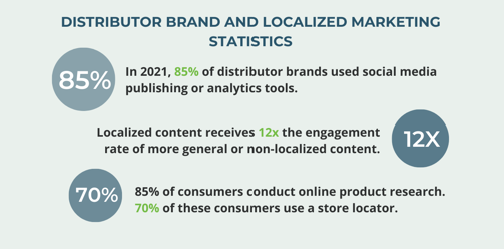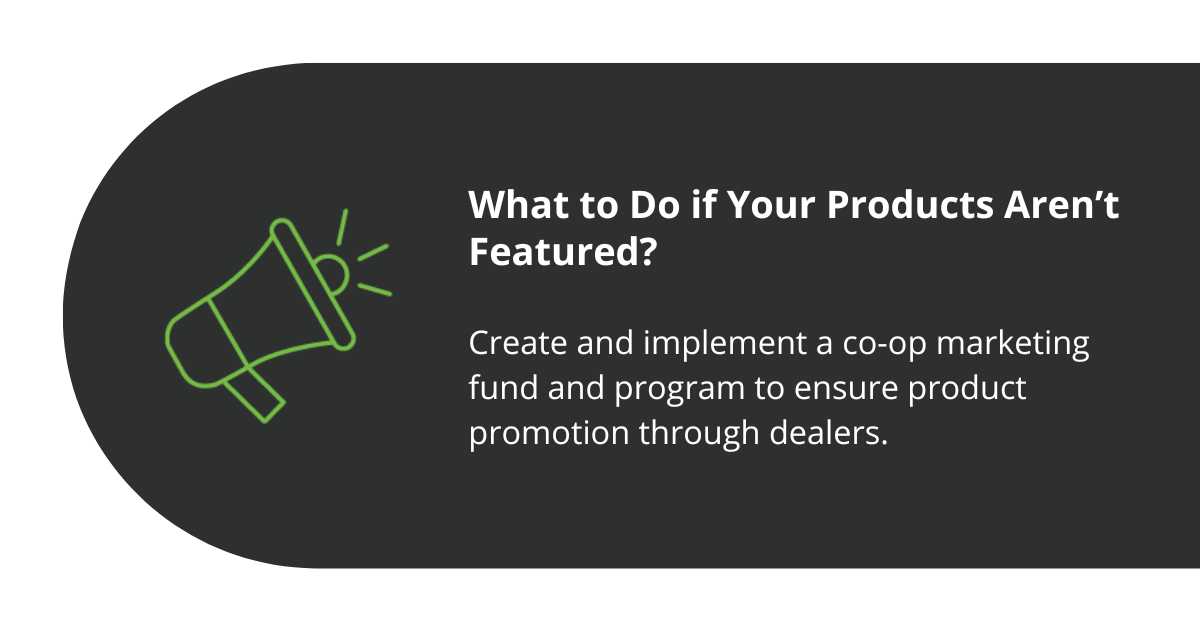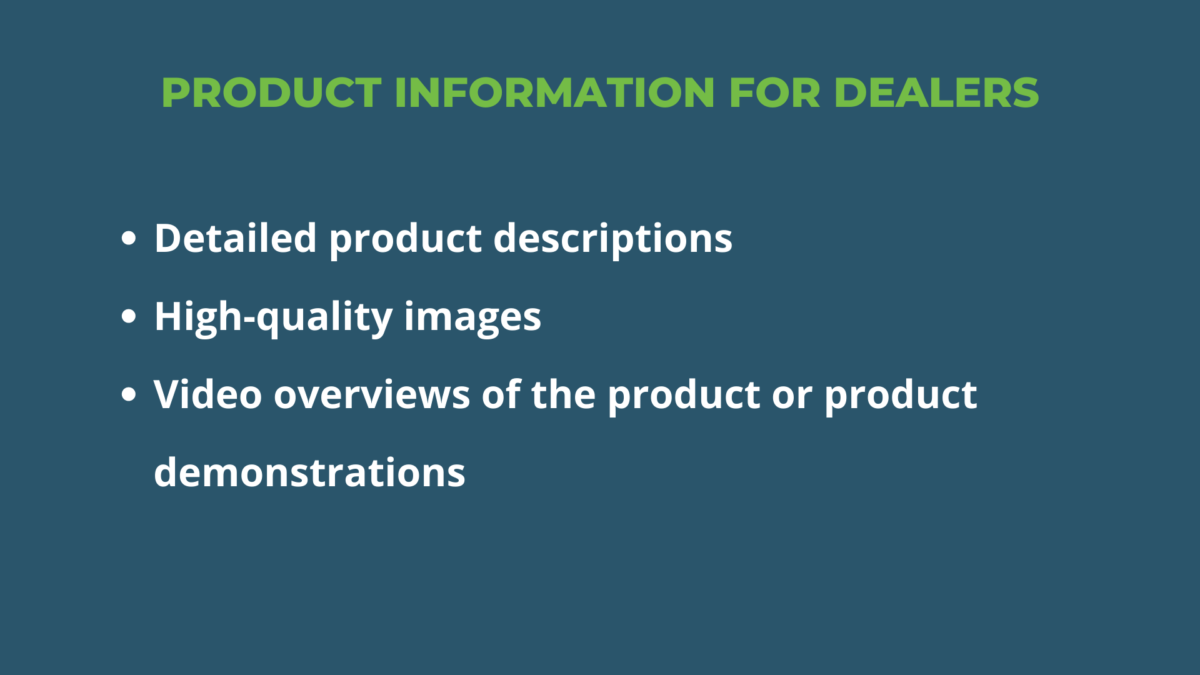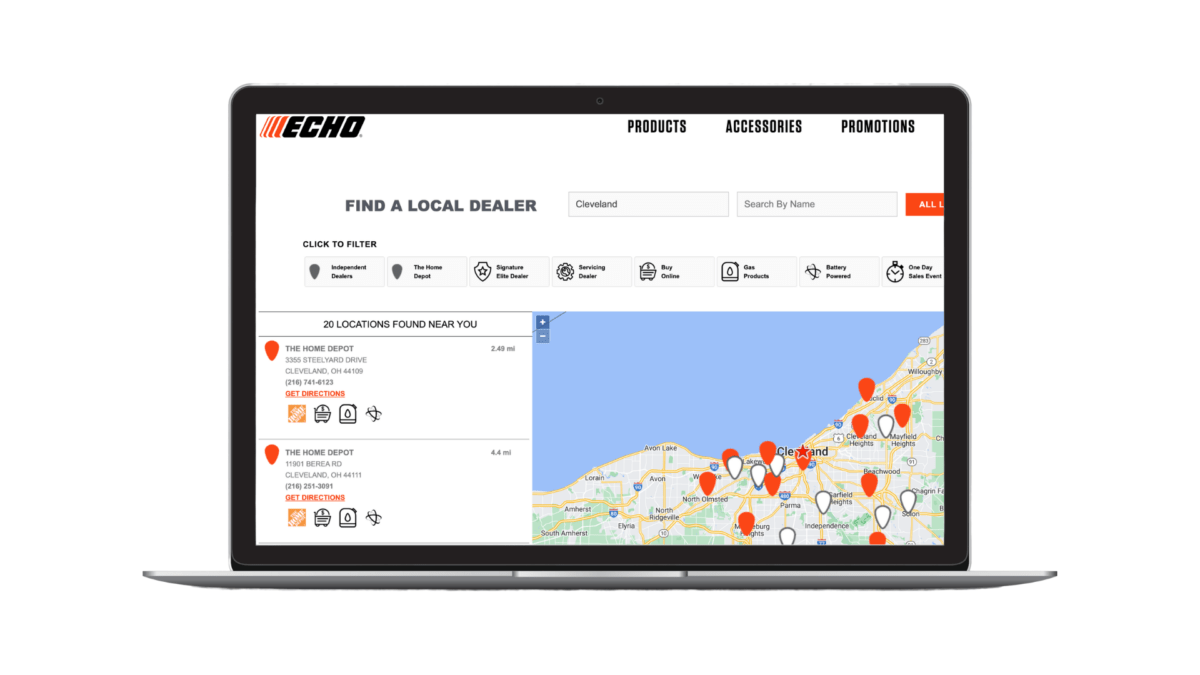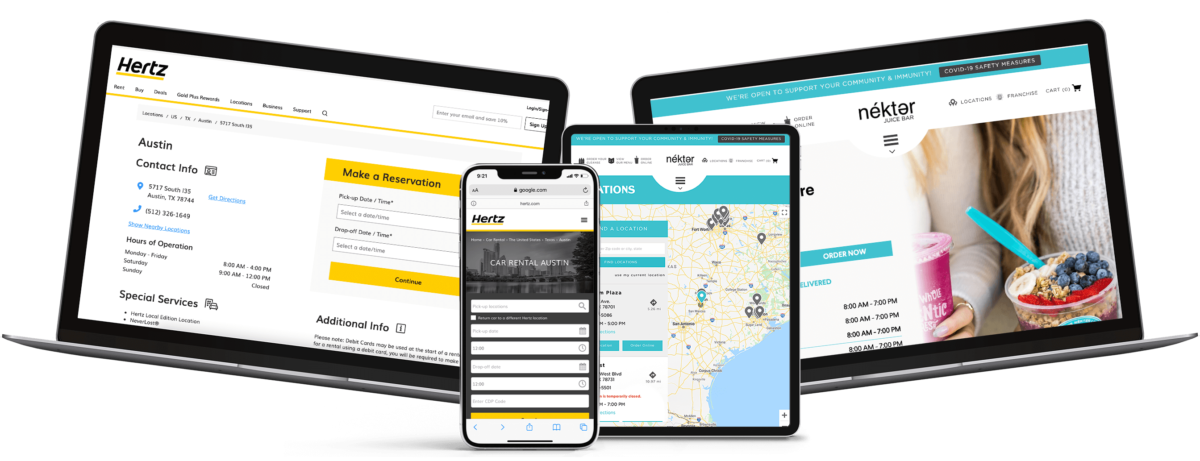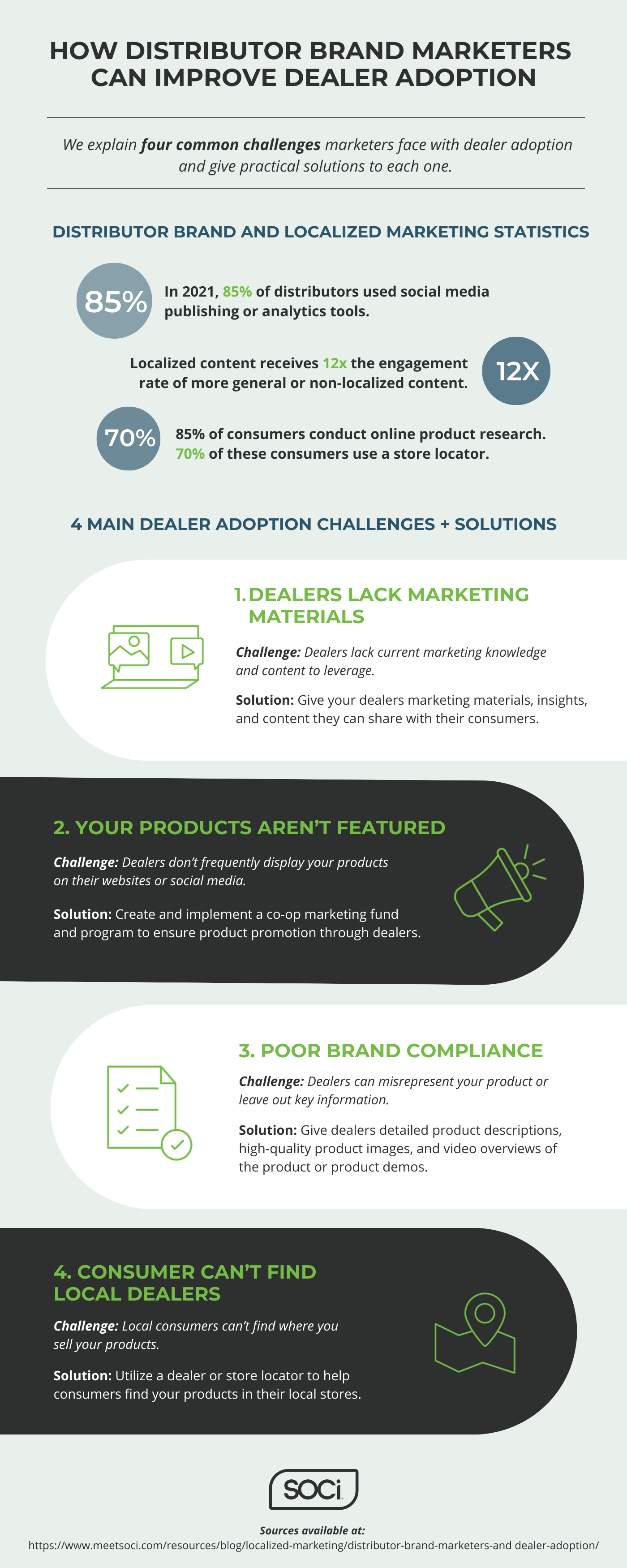4 Challenges Distributor Brand Marketers Face with Dealer Adoption
Distributor brands , like those in other industries, must market their products and services at a national and local level. However, marketers face the unique challenge of marketing their products through a two-step or three-step distribution model and working with distributors, dealers, and retailers.
In this blog, we’ll explain the relationship marketers have with their dealers and retailers and address solutions to some of the most common challenges marketers face with dealer adoption.
The Brand and Dealer Relationship Explained
Table of Contents
Distributor brands and dealers have a symbiotic relationship; they benefit from each other. Brands depend on dealers or retailers to sell their products and goods, while dealers need brands’ products to stock their shelves and generate sales for their stores.
One way brands and dealers can improve sales and generate more revenue is to work together and implement a localized marketing strategy.
Localized marketing means tailoring your marketing efforts to local markets, which drives more customers to your dealers and your products.
Despite brands and dealers working together, they both face challenges when it comes to marketing correctly. As mentioned, we’ll explain some of the most common challenges marketers face when working with dealers and their solutions.
1. Dealers Lack Marketing Materials
Challenge:
Many local dealers don’t have the most up-to-date marketing strategies or content. That’s not to say local dealers don’t care about marketing, specifically content marketing. Due to time and energy constraints, many have put content marketing efforts on the back burner.
Local dealers are often in need of marketing material to grow local awareness, gain more customers, and boost profits. This is where your marketing expertise can help!
Solution:
Share your marketing knowledge with local dealers. Dealers will appreciate a partner who gives them the marketing materials and insights to improve their local marketing efforts.
Below are a few ways and examples to help improve your dealers’ content marketing efforts:
- Provide dealers with content about your products and services that they can share with customers.
- Example: The five best [brand’s name] makeup powders for contouring.
- Share how-to guides or industry knowledge that their consumers will find helpful.
- Example: The basics of building any tree house.
- Send product demonstrations or explanation videos.
- Example: A product overview of a newly released 40-liter hiking backpack
Dealers and retailers can publish this type of content to their website or social media profiles, which improves your brand and product awareness. Local dealers will also benefit by being perceived as industry and product experts.
2. Dealers Don’t Frequently Feature Your Products
Challenge:
Another complication brands face is that sometimes dealers don’t frequently display a brand’s products on their website or social media. Even worse, some dealers might feature competitors’ products more than yours.
Solution:
One solution is to create and implement a co-op marketing fund and program, sometimes referred to as a marketing development fund (MDF) program.
A co-op marketing program is when a brand pays for a portion or all of a marketing campaign or a marketing technology (MarTech) — this is the “fund” portion of the program. The brand then lends these marketing campaigns or MarTech to dealers to use in their localized marketing strategies.
As mentioned in the previous section, you want to supply high-quality marketing content to your dealers. A co-op marketing program makes it easier for dealers to publish your brand or product-related content you provided on their website and social media pages.
A co-op marketing fund makes this program easier to achieve by helping brands and dealers set marketing budgets to decide how much money to put behind marketing programs, individual campaigns, and technology.
If done correctly, a co-op marketing fund can help you be more strategic about your content marketing and ad spend, which lowers marketing costs. A co-op marketing fund can also boost brand exposure and increase dealers’ online and in-person foot traffic. Brands also gain more brand awareness and revenue as their dealers sell more of their products.
3. Local Dealers Lack Brand Compliance When Showcasing Your Products
Challenge:
Another pain point marketers come across is the misrepresentation of their products.
When dealers publish your products on their website, they may misstate your product’s purpose or leave out pertinent information that separates your products and brand from competitors. Typically, this is an unintentional mistake, but you can help to avoid it!
Solution:
There are several ways to prevent product misrepresentation or poor product marketing.
The first fix is to ensure you’re giving dealers all the necessary information they need to list and market your products correctly. This can take the form of:
Additionally, in your dealer agreement, you can detail the marketing requirements for your products. This contract can help to ensure your products are correctly listed and marketed.
Similarly, if you have a co-op marketing program with a dealer, you can include product or marketing guidelines and information within that contract. These help both brands and dealers if a discrepancy occurs.
4. Consumers Have Difficulty Finding Local Dealers
Challenge:
Consumers today are searching locally for their business needs. Nearly nine out of ten people search weekly on their smartphones for a local business.
As a distributor brand, your products are likely in hundreds of independent dealers across North America, or you’re like Ace Hardware and have a mix of independent and branded retailers across the country. Because your products are in multiple dealers, sometimes consumers have difficulty finding your products locally.
Solution:
Regardless of which dealership model you have, it’s important that your consumers can easily find where to purchase your products. A dealer locator will help.
A dealer locator is a landing page on your company’s website that links to dealers that sell your products. Dealer locators often contain an interactive map and the NAP (name, address, and phone number) information for each dealer.
The interactive map and dealer information help online shoppers find where you sell your products and services. Here’s an example dealer locator:
Dealer locators are a great user and customer experience asset. Dealer locators keep customers on your website and focused on your products. This helps improve your conversion rates by keeping customers in your branded customer journey.
Store locators also improve your local SEO by linking to local pages, also called local landing pages. Together, locators and local landing pages improve your local search rankings by giving search engines and consumers the local business information they want to see.
Read our blog post on distributor brands’ local pages and locators to learn more about optimizing both.
Choosing the Right Marketing Tools
Distributor brand marketers must build strong relationships with their franchisees and independent dealers. Marketers can empower their dealers by giving them marketing materials and funds needed to help dealers boost sales.
With today’s inflation impacting multi-location businesses, many brands need to cut down on costs. One way to simplify your marketing strategy and help dealers better market your products is with SOCi.
SOCi Local Pages and Locator can help you create and sustain a branded customer journey when searching for local dealers and retailers, helping you convert online searchers into in-store customers.
Additionally, SOCi Social can help with brand consistency across your franchisees and independent dealers. SOCi Social allows you to share pre-approved marketing content with your independent dealers. This helps to ensure consistent brand messaging and makes you a fan favorite with local audiences.
Infographic sources: SOCi | Content Marketing Institute | Oberlo
